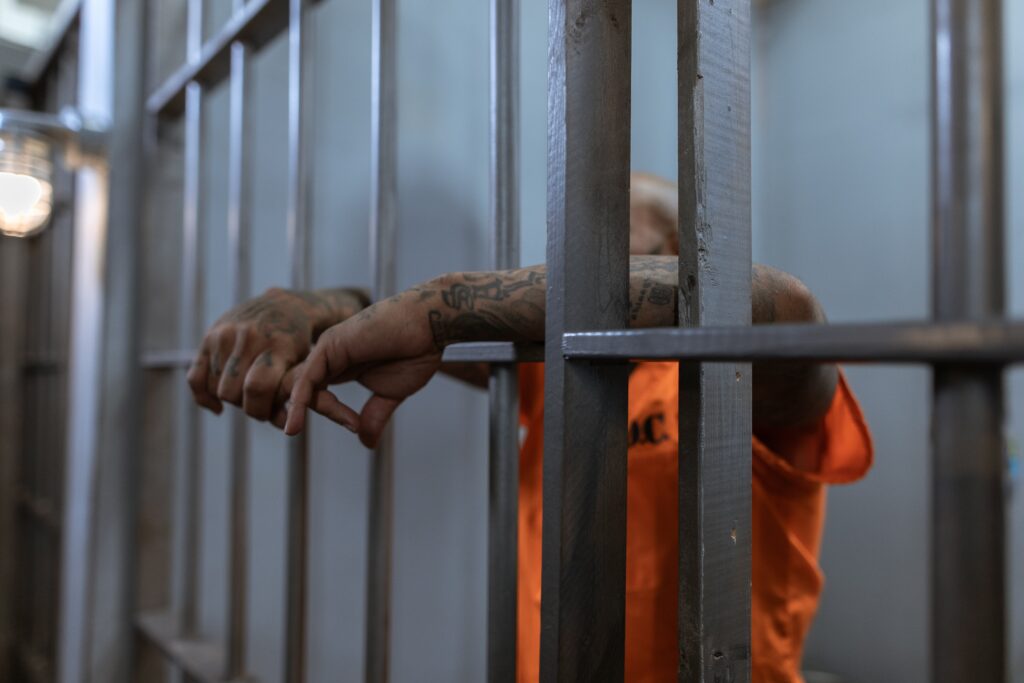Kansas needs to end the death penalty

There are many scary and dangerous things in this world with the government being arguably the scariest and most dangerous thing out there. Of all the horrors in this world, bad government policy is by far the most real for the average person. Due to this, it is important to combat the government from growing too big to cause harm to anyone. This includes citizens who may have indeed done something horrible to another person. In this article, we’re going to look at the history of the death penalty in Kansas and debunk some arguments that favor the government murdering people, including the occasional innocent person.
History of the death penalty in Kansas
A death penalty statute for the state of Kansas has been enacted three times over the years; the first being abolished by the legislature on January 30, 1907. Due to this, Kansas Coalition Against the Death Penalty (KCADP) celebrates January 30 as Abolition Day in Kansas.
According to Truman Capote, author of the 1966 novel, ‘In Cold Blood,’ which chronicled the murder of a Kansas family, the Kansas legislature restored the death penalty in 1935, partially due to the “sudden prevalence in the Midwest of rampaging professional criminals.” However, the first execution would not occur in Kansas until nine years later in 1944. Over the course of the next ten years, nine people would be hanged.
Kansas Governor George Docking (D), who served in this role from 1957-1960, would be partially responsible for a six-year hiatus (1954-1960) of the death penalty, stating, “I just don’t like killing people.”
However, after being defeated in 1960 for re-election, partly due to his attitude toward capital punishment, the death penalty came back in November 1962 to take the life of Lowell Lee Andrews and would again take two more lives in 1965—the last year anyone in the state of Kansas would receive capital punishment (nearly 60 years ago).
On June 29, 1972, the death penalty was struck down by the United States Supreme Court in the Furman v. Georgia decision, as there was disagreement among how to carry out the punishment fairly and humanely. Kansas, along with 39 other states, had their death penalty laws voided under that case.
The 1976 ruling of Gregg v. Georgia found the death penalty to be constitutional, allowing states to reinstate capital punishment so long as they followed certain procedural reforms. On April 23, 1994, 18 years after the ruling, Kansas would enact a new death penalty law. The then-governor Joan Finney (D) would not sign, nor veto the bill, allowing it to become law without her signature, taking effect on July 1, 1994.
Since the 1994 law took effect, Kansas has seen more than 100 potential capital cases, with capital charges being filed in 85 cases in 31 of the 105 counties. Despite this, there have been zero executions in the soon to be 30 years since enacting the death penalty in Kansas. As of today, nine men remain on death row in Kansas, two having been on death row for more than 20 years. The last time a Kansas jury imposed the death sentence was in 2016, and this has been the only death sentence imposed in Kansas in the past decade. Lethal injection is the only legal form of execution in the state of Kansas.
Arguments Against the Death Penalty
Many argue in favor of keeping the death penalty, however, these arguments are often born from ignorance regarding the real issues surrounding the death penalty. In this section we will look at and debunk some of the most common arguments for the death penalty and explain why they don’t work.
Argument 1: “The death penalty deters people from committing crimes.”
This is a common argument that is actually false. Multiple studies suggest that the death penalty does not deter people from committing violent crimes. In 2012, a report by National Research Council titled ‘Deterrence and the Death Penalty’ stated that studies that support the death penalty as an effective means of deterrence are “fundamentally flawed” and should not be used in making policy decisions. A 2009 poll commissioned by DPIC found that the death penalty ranked last among police chiefs as an effective means to reduce violent crimes and the least efficient use of taxpayers’ money. Another study by DPIC found that the South has consistently had the highest murder rate while also accounting for more than 80 percent of executions over a 30-year timeframe. In contrast, the Northeast, which has consistently had the lowest murder rate has also only seen 0.5 percent of the total executions.
Argument 2: “These people are guilty and deserve to die for the sake of justice.”
It is important to humanize all people. Even the ones that have committed a horrible crime. At the end of the day, a human life is a human life and should be valued as such regardless of who the human is. And by the way, mistakes happen. In fact, since 1973, more than 195 people have been released from death row with evidence of their innocence. Since 1973, an average of 3.94 wrongfully convicted death-row prisoners have been exonerated each year. If we are to be serious about the sake of justice, then even one innocent life lost through capital punishment should be considered too many and an infringement on justice. After all, is the innocent life lost at the hands of government not deserving of justice?
Argument 3: “The death penalty saves taxpayer’s money. The sooner criminals are dead, the sooner we no longer have to pay for their meals and other accommodations.”
The death penalty does not save taxpayer’s money. In fact, it costs more to put people on death row than to give them life in prison for a multitude of reasons. Capital trials cost more than non-capital cases due to higher costs for prosecution and defense lawyers; pre-trial investigations are time consuming; the jury selection for death-qualifications are lengthy; the trials are longer due to bifurcated proceedings; security is required to be enhanced, solitary confinement incarceration, and to ensure fairness, necessary appeals need to be made.
Multiple studies even show that capital punishment cases are costly and overburdensome for taxpayers. Independent research studies in 15 death penalty states from 2001-2017 found the average difference in case-level costs for seeking the death penalty was just over $700,000.
Here, in Kansas, it was found in 2014 that the average death penalty case cost $400,000 compared to $100,000 per case when the death penalty was not sought.
A 2010 report by the Administrative Office of the U.S. Courts found that seeking a federal death sentence costs 8 times more than seeking a life sentence.
Regardless of by how much more, it’s very clear to see that cases seeking the death penalty cost taxpayers hundreds of thousands of dollars more than a life sentence, making this an unnecessary tax burden on all of us.
Argument 4: “What about the family of the victims? Don’t they deserve justice?”
Families do deserve justice for their lost loved one(s), but why does justice have to look like the taking of another human life? The reality is it doesn’t, and often times it’s not what the families want. This is so commonly the case that a group of families who have found themselves in this particular situation have come together to create the Murder Victim Families for Reconciliation—a group of families against the death penalty despite knowing the heartache of losing a loved one due to murder. The reality is, the death penalty will not give them their loved ones back and they will be forced to relive the situation with every appeal, chipping away at any healing they were able to do. Furthermore, as should already be understood, mistakes happen, and innocent lives get put on death row for crimes they don’t commit. Should an innocent life be taken by the government only to find out later they were indeed innocent, how would the family feel then? An eye for an eye leaves the whole world blind, and that is something that should not be forgotten.
Conclusion
Hopefully, this information has changed the minds of some who originally supported the death penalty and has provided more information for those who were already against it. We, as Kansans, can make this state better, and it can start by ending the death penalty—hopefully in 2024.
Thanks for reading. Be sure to share and subscribe. You can also help support independent journalism in Kansas by buying me a coffee at buymeacoffee.com/kscon.

Ian Brannan
Ian Brannan is an independent journalist who founded The Kansas Constitutional in April 2022. His work focuses on issues including abortion, Convention of States, drug policy, education, government, LGBT issues, media, and more. He is also the co-host of the Remember COVID podcast.

